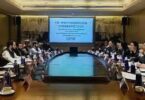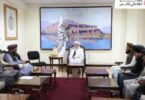Jordan Cohen
Secretary of Defense Lloyd Austin recently testified before the Senate Armed Services Committee and said that despite not having US troops in Afghanistan, the difficulty of “over the horizon operations” can be overcome by using intelligence from “a variety of sources.” These types of operations rely on intelligence and the ability to station US soldiers in partner countries. In return, the US is technically still fighting, though without directly risking American lives. If this continues, it means that the US is not withdrawing from Afghanistan, instead choosing to continue fighting a losing war from afar.
Over the horizon operations are being conducted out of three countries: Qatar, the United Arab Emirates, and Kuwait. Partner countries receive military aid in exchange for hosting US troops and providing intelligence on US adversaries. While appearing to be a low-?cost form of engagement, operations based out of these countries all come with the risk of effectively allowing the Afghanistan war to continue indefinitely, not to mention that it further entangles the US in dangerous alliances.
Take the fact that Qatar’s Al Udeid base is where the US will run most of the “over the horizon” air missions. Washington is using it for stationing troops, drone strikes, and negotiations. Knowing this, over the last two decades, policymakers in Doha have used this reliance to get more US weapons.
For example, the US currently has authorized over $26 billion in active weapons sales to Qatar that provide military technology, military training, and aid to expand the military base itself. This is troubling because, for twenty years, Washington agreed to strengthen the Qatari military facilities in exchange for the country buying US weapons. In other words, as Qatar buys more weapons, the US will rely on it more for these operations.
Unfortunately, Qatar is also a supporter of terrorism and uses US weaponry for that purpose. In 2012, the Obama administration authorized secret shipments of weapons to Doha. The goal was for these weapons to support the NATO mission in Libya. As the war developed, the administration learned that these weapons were being given to terrorists.
Due to US reliance on the air base and with little ability for recourse, Washington continued to request Qatari aid in Libya and Syria. Over the next two years after the weapons dispersion to terrorists, the US responded by increasing weapons sales. In 2013 and 2014, the US authorized more than $10 billion in new sales and delivered over $91 million more to Qatar.
The story is no better with the UAE or Kuwait. In support of the recent $23 billion weapons sale to the UAE, the Defense Security Cooperation Agency notes the Al Dhafra air base as a key reason to support the sale. This means that, because of its decision to continue fighting in Afghanistan from abroad, Washington is ignoring the UAE’s role in housing as a home to funders for the Taliban’s strongest military unit and their financing Russian weapons deliveries to Afghanistan in 2010. Like Qatar, because of US reliance on the UAE for operations in Afghanistan, the UAE will never completely stop funding terrorists.
Finally, the US military bases in Kuwait—Ali Al Salem and Ahmad al-Jaber—will be necessary in future operations in Afghanistan. US weapons sales to Kuwait include the most advanced missiles, tanks, and helicopters produced in America. In return, Kuwait allows the fourth largest number of stationed US troops in the world.
And Kuwait is hardly an innocent partner. They act as a source of funds for al-?Qaeda as well as recently housing individuals that helped fund Hezbollah activities in Iran and Lebanon. The Gulf country also provides funding to other unsavory organizations. For example, they fund the Society of the Revival of Islamic Heritage. This organization supports terrorism and appears on the US State Department list of Foreign Terrorist Organizations.
None of this is to say that having boots on the ground in Afghanistan is a better option. The US has funded all three countries throughout the War on Terror while having troops on the ground. As a result, relying on them for over the horizon operations means aiding countries that support terrorists. These operations are sure to continue terrorist financing and human rights abuses.
The rub when it comes to over the horizon operations is that terrorists enjoy increased financing and recruitment opportunities, but Americans do not see it. This means that the military strategy detaches visible costs from the public’s eye. Terrorist groups will benefit because of US reliance on these operations, but it will be invisible to Americans until it is too late.
The idea of fighting terrorism at low costs sounds optimal. But these operations will instead prolong America’s longest war by giving terrorists a financial lifeline. Biden’s strategy will not deliver the final blow to two decades worth of fighting. Instead, it will give terrorists tools to survive and grow, while misleading the American public on the war’s end.






